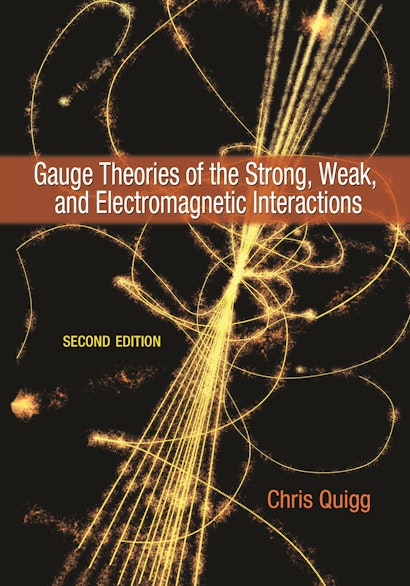Gauge Theories of the Strong, Weak, and Electromagnetic Interactions: Second Edition


Hardcover
ebook
- Sale Price:
- $64.40/£54.60
- Price:
-
$92.00/£78.00 - ISBN:
- Published:
- Sep 22, 2013
- Copyright:
- 2014
- 150 line illus. 17 tables.
- Main_subject:
- Physics & Astronomy
30% off with code PUP30
This completely revised and updated graduate-level textbook is an ideal introduction to gauge theories and their applications to high-energy particle physics, and takes an in-depth look at two new laws of nature—quantum chromodynamics and the electroweak theory. From quantum electrodynamics through unified theories of the interactions among leptons and quarks, Chris Quigg examines the logic and structure behind gauge theories and the experimental underpinnings of today’s theories. Quigg emphasizes how we know what we know, and in the era of the Large Hadron Collider, his insightful survey of the standard model and the next great questions for particle physics makes for compelling reading.
The brand-new edition shows how the electroweak theory developed in conversation with experiment. Featuring a wide-ranging treatment of electroweak symmetry breaking, the physics of the Higgs boson, and the importance of the 1-TeV scale, the book moves beyond established knowledge and investigates the path toward unified theories of strong, weak, and electromagnetic interactions. Explicit calculations and diverse exercises allow readers to derive the consequences of these theories. Extensive annotated bibliographies accompany each chapter, amplify points of conceptual or technical interest, introduce further applications, and lead readers to the research literature. Students and seasoned practitioners will profit from the text’s current insights, and specialists wishing to understand gauge theories will find the book an ideal reference for self-study.
- Brand-new edition of a landmark text introducing gauge theories
- Consistent attention to how we know what we know
- Explicit calculations develop concepts and engage with experiment
- Interesting and diverse problems sharpen skills and ideas
- Extensive annotated bibliographies